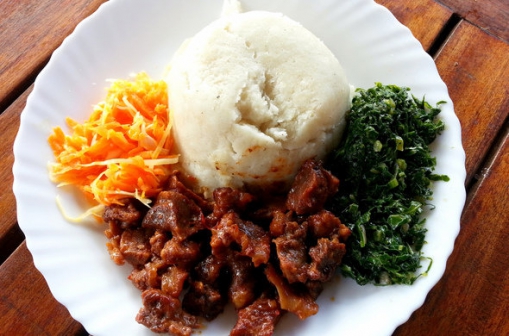
A new study has showed that hundreds of food handlers who failed to secure medical certificates because they had drug-resistant germs found jobs in some high-end city hotels and roadside stalls.
The study involving food handlers seeking medical certificates at the Kenya Medical Research Institute (Kemri) found that up to a third of the applicants carried highly drug-resistant germs.
Some 323 were already employed food handlers yet 70 per cent had never had a valid food handling licence.
The study found hotel workers living in the poorer eastern region of the city but working all over Nairobi carried the highest volumes of dangerous germs. This was in comparison to hotel workers living in western and more affluent parts of Nairobi.
“Most isolates were from individuals residing within the eastern region of Nairobi commonly characterised by sanitation challenges such as lack of potable water and poor sewerage and drainage systems,” says the study.
Eastlands covers, among other areas, Umoja, Kariokor, Dandora, Kariobangi, Embakasi, Donholm, Kayole and Huruma.
The results of the study posted last week found multiple drug-resistant germs spread to all parts of Nairobi County including Makadara, Embakasi, Kasarani, Westlands, Langata and the central business district.
Study participants were food handlers from all classes of hotels in Nairobi, ranging from roadside kiosks to middle class and five-star establishments.
Low-class outlets were categorised as food stalls on the roadside, majorly made of makeshifts structures, with a meal in most cases costing less than Sh102 (one US dollar)
Middle-class hotels included restaurants and cafeterias operating in permanent structures, including those of up to three-star category and those generally selling fast foods.
“High-class outlets comprised hotels rated from four stars and above,” says the study led by Arnold Onani Juma of Jomo Kenyatta University of Agriculture and Technology (JKUAT).
Recently, a number of high-class hotels have been associated with food poisoning in Nairobi and in this case, the food handlers were being examined for the bacteria E coli.
Some strains of E coli cause severe food poisoning, diarrhoea, urinary tract infections, respiratory illness and pneumonia in humans.
These germs are transmitted through contaminated water or food, or through contact with animals or persons.
A third of all isolates were resistant to most of the available medicine and mainly from individuals working in middle-class hotels in Nairobi’s CBD.
The study also found that younger women food handlers, than men, were more likely to carry drug-resistant germs.
Such women, the study says, were most likely to resort to self-medication when sick.
The researchers recommend proper screening of applicants before issuance of food handler certificates.
At the same time, they want regulatory authorities to make sure all hotels, irrespective of class, observe high levels of sanitation, including access to clean water, toilets and garbage disposal systems. [www.rocketscience.co.ke]
 The Standard Group Plc is a multi-media organization with investments in media platforms spanning newspaper print
operations, television, radio broadcasting, digital and online services. The Standard Group is recognized as a
leading multi-media house in Kenya with a key influence in matters of national and international interest.
The Standard Group Plc is a multi-media organization with investments in media platforms spanning newspaper print
operations, television, radio broadcasting, digital and online services. The Standard Group is recognized as a
leading multi-media house in Kenya with a key influence in matters of national and international interest.











